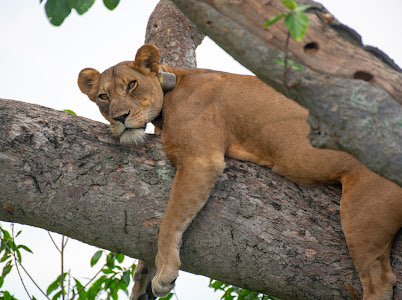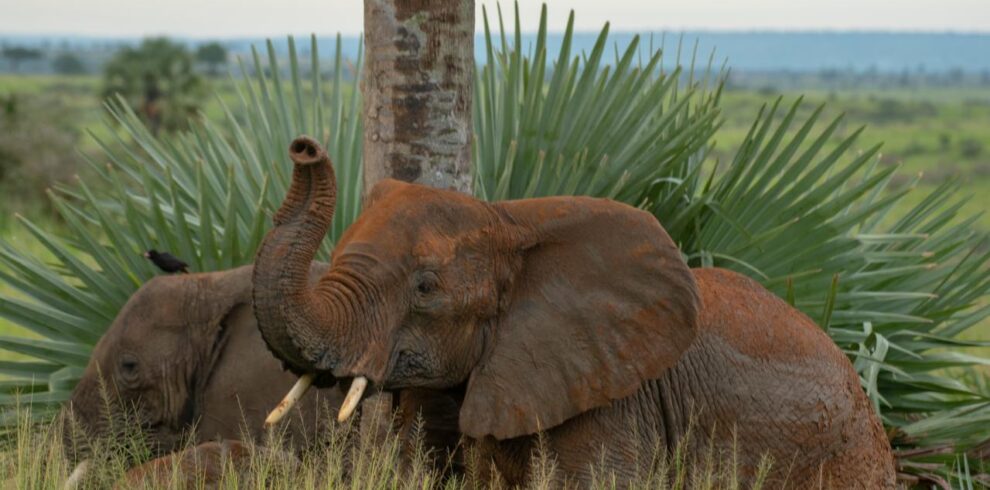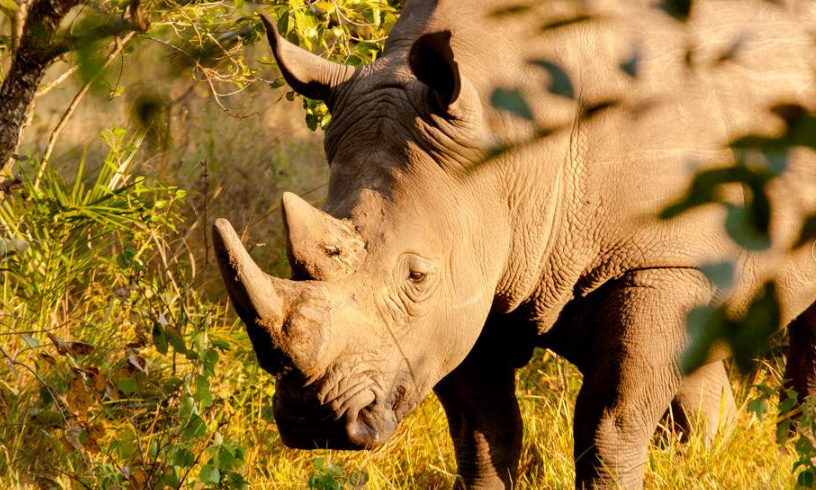- 1
- 2
- 1
- 2
- 7
A budget travel safari tour is a great way to experience the thrill of a safari without breaking the bank. It focuses on providing a memorable wildlife experience while keeping costs down. Here’s what you can expect and how you can make the most of a budget safari tour:
### 1. **Choosing a Destination**
– **Affordable Parks:** Opt for destinations that offer lower entry fees and budget-friendly accommodations. For example, Tanzania’s Tarangire National Park and Kenya’s Tsavo National Park are known for being more affordable compared to other premium safari parks.
– **Off-Peak Seasons:** Traveling during the off-peak season can reduce costs significantly. Avoid peak travel times such as school holidays and major festivals.
### 2. **Accommodation Options**
– **Budget Lodges and Campsites:** Stay in budget lodges or campgrounds that offer basic amenities but still provide comfort and safety. Public campsites in national parks often have lower fees.
– **Hostels and Guesthouses:** In some safari destinations, you may find hostels or guesthouses near park entrances, offering more affordable rates.
### 3. **Safari Packages**
– **Group Safaris:** Joining a group safari tour can lower costs as expenses are shared among participants. Group tours typically offer a more economical way to experience multiple parks and attractions.
– **Self-Drive Safaris:** Renting a vehicle and driving yourself can be a cost-effective option. This allows for flexibility in your schedule and reduces the cost of guided game drives.
### 4. **Transportation**
– **Public Transport:** Use public transportation such as buses or shared shuttles to travel between destinations. This is often cheaper than private transfers or flights.
– **Economy Flights:** Look for budget airlines or special deals for flights to your safari destination. Booking in advance can help secure lower fares.
### 5. **Game Drives and Activities**
– **Shared Game Drives:** Opt for shared game drives with other tourists rather than private ones. This reduces the cost per person while still providing a chance to see wildlife.
– **Self-Guided Walks:** Some parks offer self-guided walking trails, allowing you to explore the area without the cost of a guided tour. Be sure to check park regulations and safety guidelines.
### 6. **Food and Dining**
– **Self-Catering:** Choose accommodations with self-catering facilities to prepare your own meals. This can be more economical than dining at high-end restaurants.
– **Local Eateries:** Enjoy meals at local restaurants or markets, which are often cheaper and provide an authentic taste of the region’s cuisine.
### 7. **Park Fees and Permits**
– **Entry Fees:** Budget for park entry fees, which vary depending on the park and country. Research and budget these costs in advance.
– **Permits:** Some activities or special permits (such as for gorilla trekking) can be expensive. Choose activities that fit your budget and prioritize must-see experiences.
### 8. **Packing and Preparation**
– **Essential Gear:** Pack essential items such as binoculars, a camera, and appropriate clothing for safari. Bringing your own gear can help avoid additional costs.
– **Travel Insurance:** Ensure you have travel insurance that covers medical emergencies and trip cancellations. This provides peace of mind and can save money in case of unexpected events.
### 9. **Conservation and Community**
– **Support Local Communities:** Engage with community-based tourism initiatives that support local economies and conservation efforts. This can provide a richer experience and contribute positively to the area.
### 10. **Safety and Comfort**
– **Health Precautions:** Take necessary health precautions, such as vaccinations and malaria prophylaxis, to ensure a safe trip. Avoid cutting corners on health and safety, as these are essential for a smooth safari experience.
### **Tips for a Budget Safari:**
– **Book in Advance:** Plan and book your safari in advance to secure the best deals on accommodation and tours.
– **Travel Light:** Avoid extra baggage fees by packing light and only bringing essentials.
– **Negotiate:** In some cases, you can negotiate prices, especially for accommodations and tours.
A budget safari can be just as exciting and rewarding as a luxury one. By being flexible and planning ahead, you can enjoy the wonders of Africa’s wildlife and landscapes while keeping costs manageable.
Trip Type: Budget travel
Budget travel
A budget travel safari tour is a great way to experience the thrill of a safari without breaking the bank. It focuses on providing a memorable wildlife experience while keeping costs down. Here’s what you can expect and how you can make the most of a budget safari tour:
### 1. **Choosing a Destination**
– **Affordable Parks:** Opt for destinations that offer lower entry fees and budget-friendly accommodations. For example, Tanzania’s Tarangire National Park and Kenya’s Tsavo National Park are known for being more affordable compared to other premium safari parks.
– **Off-Peak Seasons:** Traveling during the off-peak season can reduce costs significantly. Avoid peak travel times such as school holidays and major festivals.
### 2. **Accommodation Options**
– **Budget Lodges and Campsites:** Stay in budget lodges or campgrounds that offer basic amenities but still provide comfort and safety. Public campsites in national parks often have lower fees.
– **Hostels and Guesthouses:** In some safari destinations, you may find hostels or guesthouses near park entrances, offering more affordable rates.
### 3. **Safari Packages**
– **Group Safaris:** Joining a group safari tour can lower costs as expenses are shared among participants. Group tours typically offer a more economical way to experience multiple parks and attractions.
– **Self-Drive Safaris:** Renting a vehicle and driving yourself can be a cost-effective option. This allows for flexibility in your schedule and reduces the cost of guided game drives.
### 4. **Transportation**
– **Public Transport:** Use public transportation such as buses or shared shuttles to travel between destinations. This is often cheaper than private transfers or flights.
– **Economy Flights:** Look for budget airlines or special deals for flights to your safari destination. Booking in advance can help secure lower fares.
### 5. **Game Drives and Activities**
– **Shared Game Drives:** Opt for shared game drives with other tourists rather than private ones. This reduces the cost per person while still providing a chance to see wildlife.
– **Self-Guided Walks:** Some parks offer self-guided walking trails, allowing you to explore the area without the cost of a guided tour. Be sure to check park regulations and safety guidelines.
### 6. **Food and Dining**
– **Self-Catering:** Choose accommodations with self-catering facilities to prepare your own meals. This can be more economical than dining at high-end restaurants.
– **Local Eateries:** Enjoy meals at local restaurants or markets, which are often cheaper and provide an authentic taste of the region’s cuisine.
### 7. **Park Fees and Permits**
– **Entry Fees:** Budget for park entry fees, which vary depending on the park and country. Research and budget these costs in advance.
– **Permits:** Some activities or special permits (such as for gorilla trekking) can be expensive. Choose activities that fit your budget and prioritize must-see experiences.
### 8. **Packing and Preparation**
– **Essential Gear:** Pack essential items such as binoculars, a camera, and appropriate clothing for safari. Bringing your own gear can help avoid additional costs.
– **Travel Insurance:** Ensure you have travel insurance that covers medical emergencies and trip cancellations. This provides peace of mind and can save money in case of unexpected events.
### 9. **Conservation and Community**
– **Support Local Communities:** Engage with community-based tourism initiatives that support local economies and conservation efforts. This can provide a richer experience and contribute positively to the area.
### 10. **Safety and Comfort**
– **Health Precautions:** Take necessary health precautions, such as vaccinations and malaria prophylaxis, to ensure a safe trip. Avoid cutting corners on health and safety, as these are essential for a smooth safari experience.
### **Tips for a Budget Safari:**
– **Book in Advance:** Plan and book your safari in advance to secure the best deals on accommodation and tours.
– **Travel Light:** Avoid extra baggage fees by packing light and only bringing essentials.
– **Negotiate:** In some cases, you can negotiate prices, especially for accommodations and tours.
A budget safari can be just as exciting and rewarding as a luxury one. By being flexible and planning ahead, you can enjoy the wonders of Africa’s wildlife and landscapes while keeping costs manageable.

- Jan
- Feb
- Mar
- Apr
- May
- Jun
- Jul
- Aug
- Sep
- Oct
- Nov
- Dec

- Jan
- Feb
- Mar
- Apr
- May
- Jun
- Jul
- Aug
- Sep
- Oct
- Nov
- Dec

- Jan
- Feb
- Mar
- Apr
- May
- Jun
- Jul
- Aug
- Sep
- Oct
- Nov
- Dec
